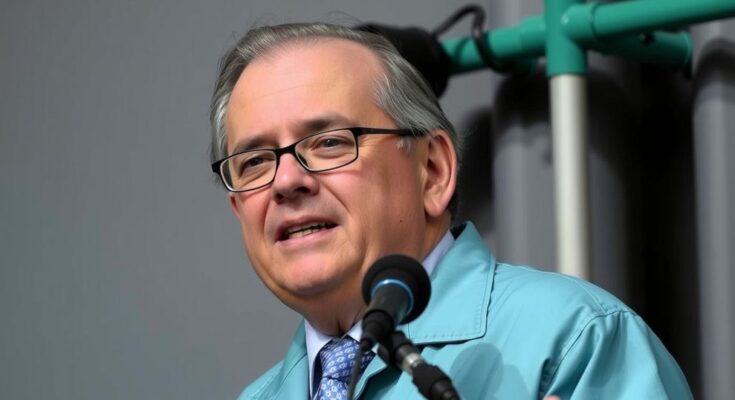Colombia’s Historic Pact, led by President Gustavo Petro, navigates severe challenges ahead of the 2026 elections, including political lawfare used to undermine his government, escalating violence against social leaders, and significant legislative opposition. In efforts to consolidate political power, Petro aims to merge several parties into a single entity, despite the complexities introduced by U.S. involvement and the return of former President Alvaro Uribe.
The government of President Gustavo Petro, known as the Historic Pact, faces significant challenges as it approaches the 2026 elections, with prospects for re-election appearing dim. The administration confronts a form of political warfare termed “lawfare,” employed by established forces to neutralize left-leaning leaders across Latin America. This strategy targets Petro’s administration amid historical precedence where similar tactics succeeded in Paraguay, Honduras, and other nations.
Petro seeks to solidify his government’s position by amalgamating several political parties into a larger entity under the Historic Pact. This consolidation aims to protect these parties from persecution, as the electoral laws threaten their survival if they fail to secure a minimum percentage of votes. The new entity intends to foster collaboration with allied movements to navigate political challenges and ensure representation.
However, the road to electoral victory is complicated by ongoing violence against social leaders and difficulties in implementing the peace agreement with the FARC. The assassination of numerous activists since the peace accord has undermined confidence in the government’s ability to maintain stability. The return of Alvaro Uribe, a polarizing figure connected to prior violent political strategies, amplifies these challenges.
Despite legislative successes, including some pension reforms and land distribution initiatives, Petro’s government struggles against an obstructive Congress and media scrutiny. The opposition has consistently blocked key labor and healthcare reforms, stymying the administration’s broader agenda. Moreover, lawfare tactics have included legal challenges against Petro and his allies, driven by remnants of previous conservative administrations.
The U.S. involvement further complicates the landscape, with American officials appearing to favor a return to traditional political dynamics in Colombia. The implications of ongoing investigations into Petro’s campaign financing, along with rhetoric from U.S. political leaders, suggest a watchful eye over Colombia’s political climate.
This tumultuous period leading to the 2026 elections poses significant risks for both the Petro administration and Colombian society at large, echoing the historical tensions between progressiveness and conservative governance in the region.
President Gustavo Petro’s administration marks a historic shift in Colombia’s political landscape as the first government to actively represent a broad coalition aiming to benefit all citizens rather than a select few. Nevertheless, it grapples with entrenched interests from powerful landowners and narco-traffickers resistant to change. The looming threat of “lawfare” as a tactic for discrediting or removing leftist leaders has been a common trend in Latin America, raising concerns about Petro’s longevity in office and the future of progressive reforms in Colombia.
The challenges facing President Petro’s administration in Colombia are multifaceted, including political maneuvers against his government, ongoing violence against social leaders, difficulties in enacting reforms, and external pressures from the U.S. It is crucial for the Historic Pact to navigate these adversities tactically to achieve electoral success in 2026, and maintain the momentum of progressive governance in the face of opposition.
Original Source: peoplesworld.org




